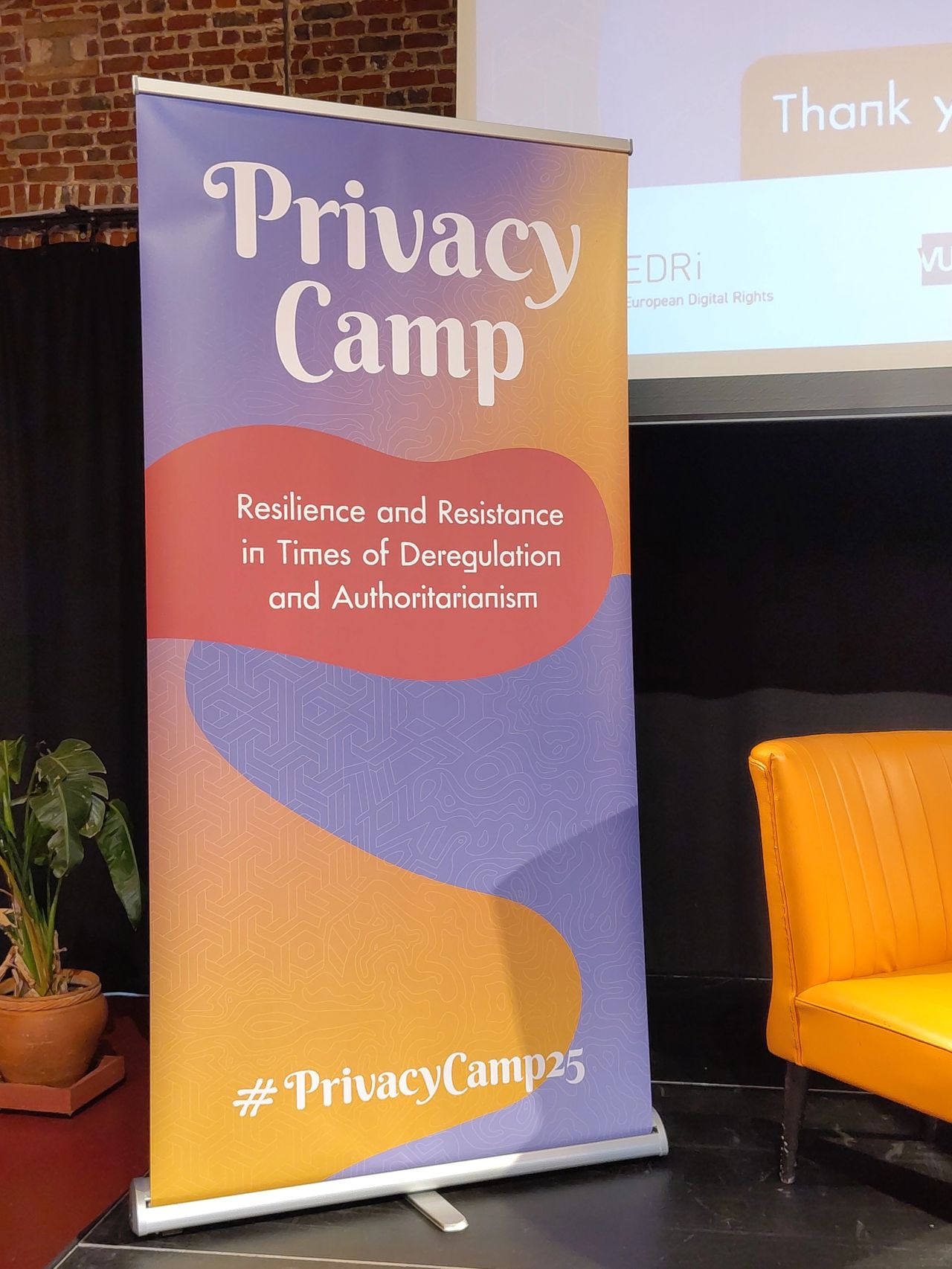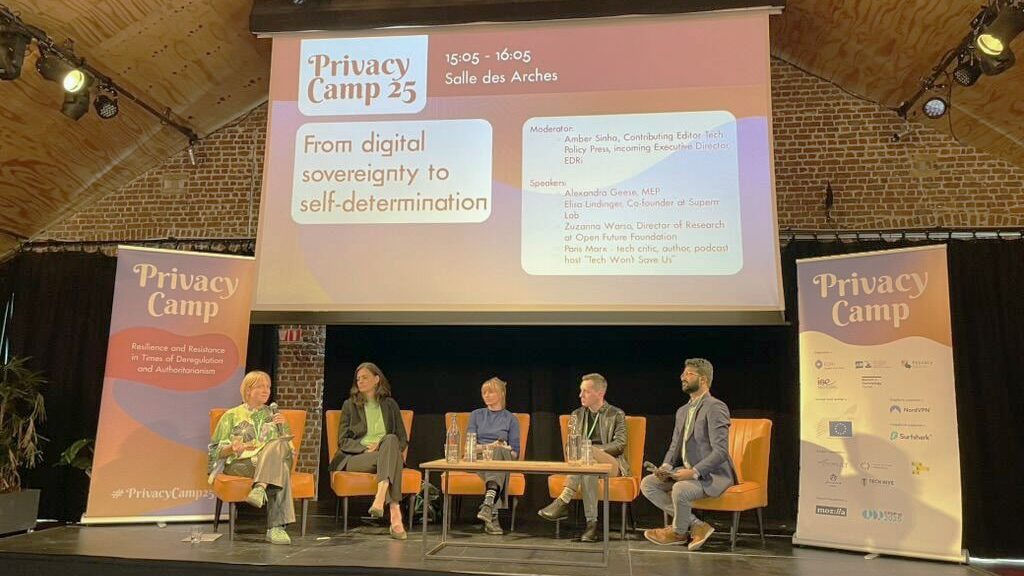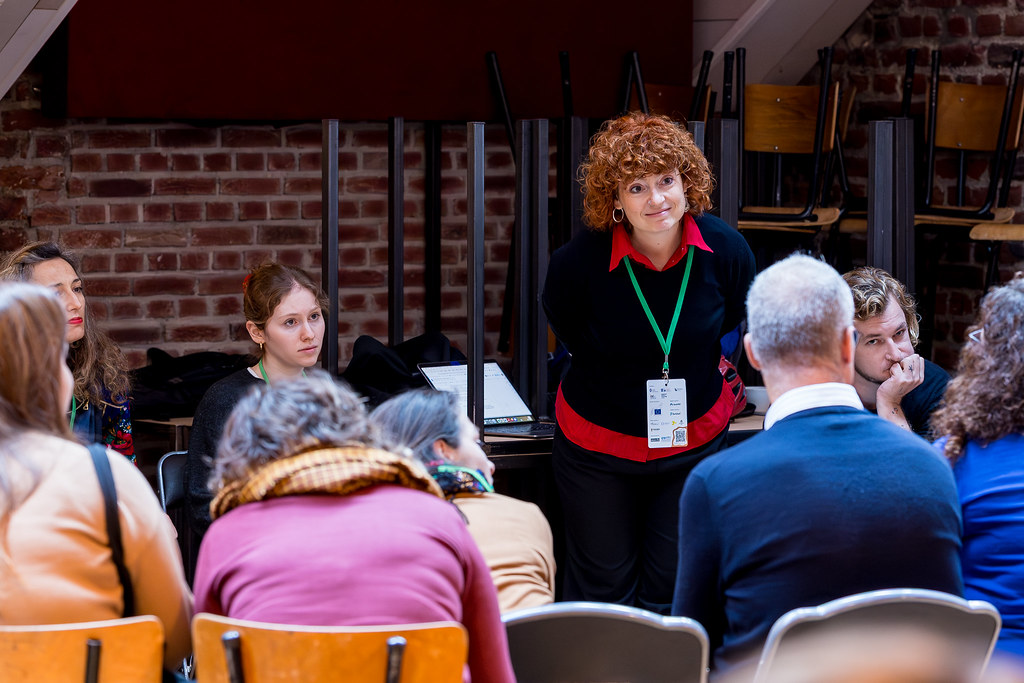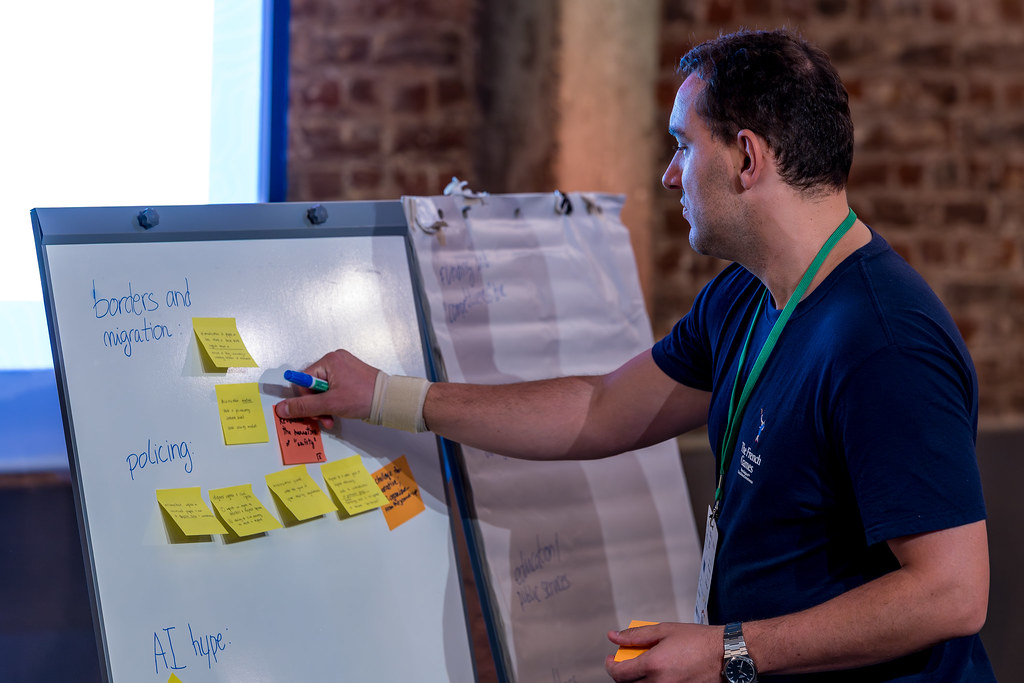From Digital Sovereignty to Self-Determination
On 30th September 2025, civil society actors, researchers, technologists, and policymakers gathered in Brussels for the Privacy Camp—an annual event focused on the intersection of digital rights, technology governance, and democratic values. Zuzanna Warso from Open Future Foundation, partner of the NGI Commons initiative was part of the panel discussion, “From Digital Sovereignty to Self-Determination”. She explored how communities and individuals can reclaim control over their digital lives amid growing surveillance, platform dependency, and geopolitical tensions in tech.

What is Privacy Camp and Why Was It Important to Attend?
Privacy Camp is a cornerstone event in Europe’s digital rights calendar, co-organised by EDRi, VUB-LSTS, and other partners. It provides a rare space for critical conversations that challenge dominant tech narratives, spotlight alternatives, and forge new alliances for rights-based digital futures. In a time when concepts such as “digital sovereignty” are increasingly dominated by state or corporate interests, the Camp offered an opportunity to reclaim these terms from a grassroots, human-centric perspective—highlighting self-determination, commons-based governance, and public-interest technology.
Who Joined the Panel Discussion?
The panel, “From Digital Sovereignty to Self-Determination,” brought together a diverse group of voices spanning policy, research, activism, and critical media.
Moderated by Amber Sinha, Contributing Editor at Tech Policy Press and incoming Executive Director of EDRi, the session opened with reflections on how narratives around digital sovereignty have evolved—and what’s at stake when they become tools of control rather than empowerment.
The discussion featured:
- Alexandra Geese, Member of the European Parliament, who highlighted the importance of regulatory frameworks that safeguard citizens’ rights while countering monopolistic and extractive digital models.
- Elisa Lindinger, Co-founder of Superrr Lab, who shared perspectives from feminist tech and digital commons initiatives, emphasising care, equity, and inclusion as guiding principles for digital self-determination.
- Zuzanna Warso, Director of Research at the Open Future Foundation, who drew on insights from the NGI Commons project and argued that debates about digital sovereignty must be grounded in a broader vision of public value where public investment in technology strengthens democracy, transparency, and social resilience rather than market dominance.
- Paris Marx, technology critic, author, and host of the podcast “Tech Won’t Save Us”, who challenged dominant big tech narratives of innovation and called for alternative approaches and democratic control over the technologies shaping everyday life.

Representing NGI Commons
Zuzanna Warso, representing the NGI Commons project, highlighted the need to treat Digital Commons – open, interoperable, and collectively governed infrastructures – as strategic public assets. These shared resources form the backbone of a democratic and resilient digital ecosystem, but they require sustained public investment and institutional support rather than short-term, project-based funding.
Zuzanna shared insights from NGI Commons’ recent policy brief, “From Public Investment to Public Value.” She argued that Europe’s pursuit of digital sovereignty must go beyond competitiveness and focus on creating public value, ensuring that public investment in technology delivers lasting social benefit.
This intervention called for reorienting Europe’s funding architecture to support the full lifecycle of public digital infrastructure, from research and development to long-term stewardship. By doing so, public spending can strengthen autonomy, transparency, and trust in digital systems—turning investment into enduring public value.
Lessons Learned
Some of the key takeaways from the event include:
- Digital sovereignty must be people-centred: Sovereignty shouldn’t be monopolised by governments or corporations but should empower individuals and communities to shape their digital environments.
- Commons-based approaches offer resilience: Infrastructures maintained by and for the public are more adaptable and accountable than proprietary systems.
- The need for cross-sector collaboration: Achieving digital self-determination will require partnerships between technologists, policymakers, funders, and civil society.
What’s Next?
Following the Privacy Camp, NGI Commons will:
- Continue supporting community-led projects that embody digital commons values
- Engage with policymakers to advocate for regulatory frameworks that recognise and fund digital public infrastructures
- Explore new collaborations with fellow Privacy Camp participants to amplify shared goals
As digital governance debates evolve, events like Privacy Camp remain crucial in pushing forward a vision of the internet that is democratic, open, and just.


